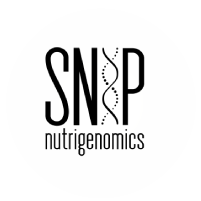In this article, you will discover how the COMT gene influences your mental and physical health by controlling the breakdown of neurotransmitters like dopamine and estrogen and how variations can affect stress, mood, and even pain perception.
You’ll also learn why knowing your COMT genetic status is important and how to support this critical gene’s optimal expression.
Introducing COMT
The COMT gene makes an enzyme called catechol-O-methyltransferase (COMT). This enzyme plays a crucial role in the body’s metabolism and breakdown of certain neurotransmitters and estrogen, working like a cleaner. It helps break down substances in your brain, including essential messengers called neurotransmitters like dopamine and adrenaline, and is crucial to estrogen metabolism. This enzyme adds a “methyl group” to these messengers, making them easier to remove from your body when unnecessary, keeping your brain chemicals at the proper levels.
But here’s the exciting part: your genes can determine how well this brain cleaner works, affecting your mood, thinking, and how you handle stress.
Let’s dive in…
COMT and the cleaning up of estrogen
COMT (Catechol-O-methyltransferase) plays a crucial role in the metabolic breakdown of estrogen, aiding in detoxifying and regulating this hormone within the body. The following list details the specific functions and impacts of COMT in estrogen metabolism:
- Catechol Estrogens: Estrogen is a hormone. Catechol estrogens, metabolites of estrogen, play roles in both men and women by influencing various biological processes, including hormonal balance, reproductive function, and cellular growth and development.
- Methylation Process: where COMT adds a “methyl group” to estrogens, helps regulate estrogen activity and detoxification, influencing hormonal balance and reducing the risk of hormone-related disorders.
- Detoxification and Elimination: This makes it easier for the body to eliminate estrogen through urine.
- Balancing Estrogen: COMT helps keep the right estrogen balance, which is crucial for good health.
- Genetic Differences: How well COMT works can vary based on your genes. Some people have a more efficient version of COMT (wild type or fast COMT ), while others have a less efficient one (homozygous or slow COMT). Your type affects how your body handles estrogen, stress hormones, and neurotransmitters.
COMT and the clearing of neurotransmitters
COMT activity, influenced by genetic variations in the COMT gene, can affect various body systems, primarily due to its role in the breakdown of neurotransmitters like dopamine and norepinephrine.
Here’s how COMT activity can impact different systems:
- Central Nervous System (CNS):
- Dopamine Levels: COMT regulates dopamine levels in the brain. High COMT activity can lead to a faster breakdown of dopamine, resulting in lower dopamine levels. This can affect mood, motivation, and cognitive function.
- Mood Regulation and Mental Health
- Mood Stability: COMT activity can influence mood stability. Low COMT activity (slower dopamine breakdown) may lead to more stable moods, while high COMT activity (faster dopamine breakdown) can result in mood fluctuations.
- Cognitive Function:
- Working Memory: COMT activity can impact working memory. Low COMT activity is associated with better working memory, while high COMT activity may reduce working memory capacity.
- Executive Function: Executive functions like decision-making, problem-solving, and cognitive flexibility can be influenced by COMT activity. Under certain conditions, low COMT activity is linked to better executive function.
- Stress Response:
- Stress Sensitivity: COMT activity can affect how individuals respond to stress. Low COMT activity may make individuals more resilient to stress, while high COMT activity can increase stress sensitivity.
- Pain Perception:
- Pain Sensitivity: COMT activity can influence pain perception. Low COMT activity has been associated with increased pain sensitivity, while high COMT activity may provide some pain relief.
- Cardiovascular System:
- Blood Pressure Regulation: Dopamine, whose levels are influenced by COMT, plays a role in regulating blood pressure. Variations in COMT activity can indirectly impact blood pressure regulation.
- Drug Response:
- Response to Medications: COMT activity can affect an individual’s response to certain medications, including those used in psychiatry and pain management. It can influence how quickly these medications are metabolized and their effectiveness.
- Psychological Traits:
- Personality Traits: COMT activity has been linked to certain personality traits. For example, it may influence aspects of personality related to risk-taking and novelty-seeking.
COMT “types” – fast, slow, and intermediate
COMT is also known as the “warrior/worrier” gene because variations in this gene affect how dopamine is metabolized in the brain, influencing stress resilience and anxiety levels. People with “fast” COMT expression (G/G alleles) are associated with being “warriors,” while people with “slow” COMT expression (A/A alleles) are associated with “worriers.” The “intermediate” type – a blend of G/A alleles – is a blend of the two.
All COMT types are associated with strengths and challenges.
Here’s a breakdown…
Fast COMT (wild type)
Known as “The Warrior” because people with this type have more enzyme activity, often resulting in the following:
Strengths:
- People with the “Fast” version of COMT tend to handle stress and pain better.
- They might be better at learning languages.
- “Fast” individuals are often seen as more cooperative, helpful, and empathic, especially in females.
- They show higher emotional resilience and can handle adverse events well.
- Females with the “Fast” version tend to have increased verbal fluency.
- In some cases, they exhibit better working memory and larger hippocampal volume.
- They may find it easier to get into a state of hypnosis.
- “Fast” results in more methylation in the gut.
Challenges:
- While they may handle stress well, “Fast” individuals often experience less pleasure in life compared to others.
- Tend to have lower IQ.
- Their executive function, or ability to process information, may be worse, but it can improve under stress.
- “Fast” individuals may have worse fine motor skills.
- They tend to be less exploratory.
- “Fast” individuals might experience more childhood depressive symptoms.
So, the “Fast” version of COMT has advantages and disadvantages, influencing various aspects of life and health.
Slow COMT (homozygous = 2 variants)
Strengths:
- They get more pleasure out of life, experiencing positive emotions more intensely.
- “Slow” individuals often display more creativity, improving their divergent thinking.
- Some studies suggest they might have a higher IQ, better working memory, and improved reading comprehension.
- They show more cognitive plasticity as they age and better cognitive function when stress isn’t in the picture.
- “Slow” folks tend to be more exploratory, respond well to placebos, and exhibit better fine motor skills and aiming abilities.
- They can absorb certain compounds from tea more effectively.
- Interestingly, they have a lower risk for addictive patterns.
Challenges:
- “Slow” individuals tend to handle stress or pain worse than others.
- Anxiety disorders, including OCD, panic disorder, and phobic anxiety, are more commonly linked to the “Slow” allele.
- They might experience more negative emotions and have more difficulty dealing with adverse events.
- “Slow” individuals can be more impulsive and are at a higher risk of depression.
- They might be less cooperative, helpful, empathetic, extroverted, and more neurotic.
- Higher levels of homocysteine have been observed in “Slow” individuals.
- Males with “Slow” COMT may be more sensitive to mercury, affecting cognitive performance.
- For some, “Slow” has been linked to fibromyalgia and increased sensitivity to pain stimuli.
- There’s a 44% increased risk for substance dependence in “Slow” individuals.
Intermediate (heterozygous)
Having one of each allele (G and A) is often seen as a benefit in COMT because it can help one find a more manageable balance in how one perceives the world.
How to optimize COMT expression (no matter your type)
COMT (Catechol-O-Methyltransferase) gene expression is influenced by various factors. While you can’t directly control your genetic makeup, you can adopt confident lifestyle choices and practices that may optimize its function:
- Dietary choices:
- Nutrient-rich diet: A diet rich in nutrients, including B vitamins and magnesium, can support healthy COMT function.
- Antioxidants: Antioxidant-rich foods like fruits and vegetables can help protect dopamine and other catecholamines from oxidative damage.
- Lifestyle factors:
- Stress management: Effective stress management techniques, like meditation, yoga, or deep breathing exercises, can help mitigate the impact of stress on COMT activity.
- Physical activity: Regular physical activity can positively influence dopamine regulation and support healthy COMT function.
- Adequate sleep: Prioritize good sleep hygiene, including dopamine, to support overall neurotransmitter balance.
- Supplements:
- Methyl donors: Supplements containing SAM-e (S-adenosylmethionine) and methylcobalamin (a form of vitamin B12) can provide methyl groups that may support COMT function. CODE Complex is based on your unique genetic blueprint supporting genetic variations impacting methyl donation with the precise nutrition your body needs.
- Medications: Sometimes, healthcare providers prescribe medications that influence dopamine levels for specific medical conditions.
- Mindfulness and self-awareness: Developing self-awareness of your stress responses, mood fluctuations, and cognitive patterns can help you manage these aspects of your health more effectively.
If you have already tested with SNiP and know your COMT type, your CODE Complex supports optimization for COMT gene expression (including fast, slow and intermediate) with nutrients such as Astaxanthin, Acerola Cherry Powder Extract, Broccoli Powder, Magnesium, Pantothenic Acid (Vitamin B5) Riboflavin (Vitamin B2), Biotin. Niacin (Vitamin B3). Thiamine, Vitamin B6, Flax Seed Powder, and Wolf (Goji) Berry.
Curious about how your COMT works?
Order your DNA test kit from SNiP Nutrigenomics today.


